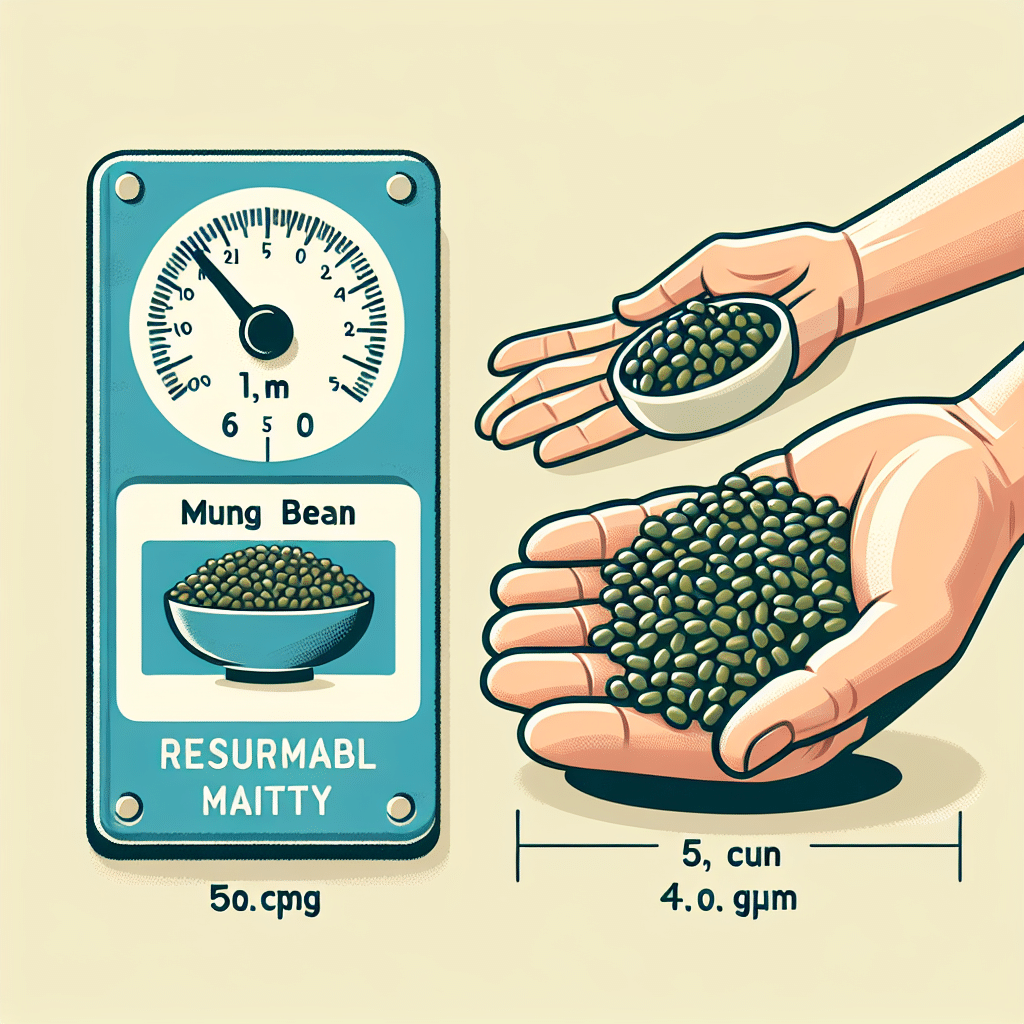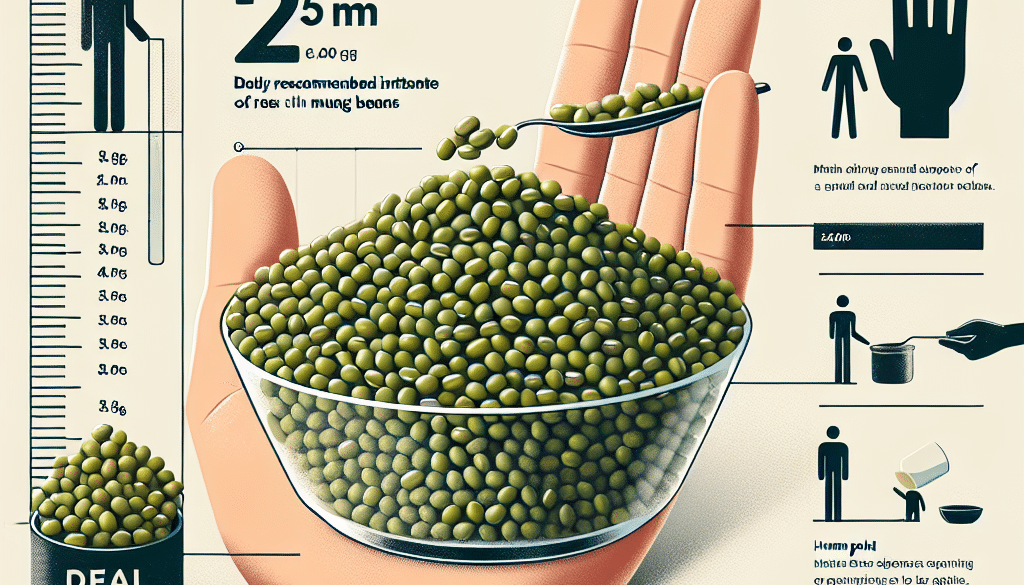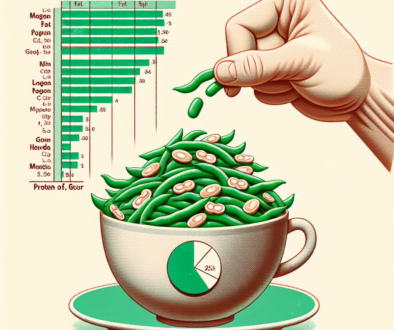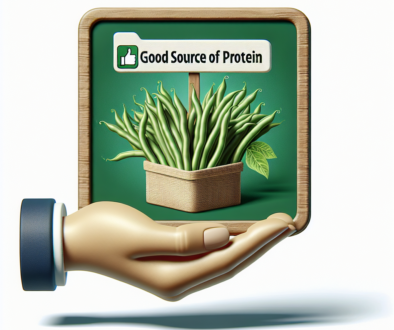How Much Mung Beans Should I Eat A Day?
-
Table of Contents
- Optimal Daily Intake of Mung Beans for Health Benefits
- Understanding Mung Beans
- Nutritional Profile of Mung Beans
- Recommended Daily Intake of Mung Beans
- Factors Influencing Mung Bean Intake
- Health Benefits of Mung Beans
- Incorporating Mung Beans into Your Diet
- Potential Risks and Considerations
- Conclusion: Balancing Mung Bean Intake for Optimal Health
- Discover ETprotein’s High-Quality Protein Products
Optimal Daily Intake of Mung Beans for Health Benefits

Mung beans, a staple in many Asian cuisines, have been gaining popularity worldwide due to their nutritional benefits and versatility in various dishes. As a rich source of protein, fiber, and essential nutrients, mung beans are an excellent addition to any diet. However, determining the right amount to consume daily can be a challenge. This article will explore the recommended daily intake of mung beans and the health benefits they offer.
Understanding Mung Beans
Mung beans are small, green legumes that belong to the Fabaceae family. They are known for their sweet flavor and are commonly used in soups, salads, and stir-fries. Mung beans are also sprouted to produce bean sprouts, which are a crunchy addition to many dishes.
Nutritional Profile of Mung Beans
Mung beans are a nutritional powerhouse, offering a range of health benefits. They are:
- High in protein: A great source of plant-based protein, essential for muscle repair and growth.
- Rich in dietary fiber: Beneficial for digestive health and maintaining a feeling of fullness.
- Packed with vitamins and minerals: Including vitamin B9 (folate), magnesium, potassium, and iron.
- Low in fat: Making them a healthy choice for those looking to manage their weight.
- Antioxidant-rich: Containing compounds that may help reduce the risk of chronic diseases.
Recommended Daily Intake of Mung Beans
The amount of mung beans one should eat per day can vary based on individual dietary needs and health goals. However, a general guideline is to consume about 1/2 cup of cooked mung beans, which equates to approximately 100 grams or 3.5 ounces. This portion provides a substantial amount of nutrients without contributing excessive calories.
Factors Influencing Mung Bean Intake
Several factors can influence the optimal daily intake of mung beans:
- Dietary restrictions or preferences
- Caloric needs based on age, gender, and activity level
- Health goals, such as weight loss or muscle gain
- Medical conditions that may require a modified diet
Health Benefits of Mung Beans
Regular consumption of mung beans can offer numerous health benefits:
- Improved Digestive Health: The fiber in mung beans helps promote regular bowel movements and prevent constipation.
- Heart Health: Mung beans contain antioxidants and phytonutrients that may reduce the risk of heart disease.
- Blood Sugar Control: Their low glycemic index makes them suitable for individuals with diabetes, helping to manage blood sugar levels.
- Weight Management: The protein and fiber content can help with satiety, reducing overall calorie intake.
- Anemia Prevention: Being rich in iron, mung beans can help prevent anemia, especially in women of childbearing age.
Incorporating Mung Beans into Your Diet
Mung beans can be easily incorporated into your daily diet in various ways:
- As a main dish: Cooked mung beans can be used in curries, stews, and soups.
- In salads: Sprouted mung beans add a crunchy texture to salads.
- As a side dish: Mung beans can be a healthier alternative to rice or pasta.
- In baking: Mung bean flour can be used in gluten-free baking recipes.
Potential Risks and Considerations
While mung beans are generally safe for most people, there are some considerations to keep in mind:
- Individuals with kidney problems should monitor their intake due to the high potassium content.
- Some people may experience bloating or gas due to the fiber content; introducing mung beans gradually can help mitigate this.
- Those with legume allergies should avoid mung beans.
Conclusion: Balancing Mung Bean Intake for Optimal Health
In conclusion, mung beans are a nutritious addition to any diet, offering a range of health benefits. A daily intake of about 1/2 cup of cooked mung beans is a good starting point for most individuals. However, personal dietary needs and health goals should be considered when determining the exact amount. By incorporating mung beans into your diet, you can enjoy their nutritional benefits while maintaining a balanced and healthy lifestyle.
Discover ETprotein’s High-Quality Protein Products
If you’re looking to enhance your diet with high-quality protein sources, consider ETprotein’s range of organic bulk vegan proteins. Their mung bean protein is an excellent choice for those seeking plant-based protein options. ETprotein’s products are characterized by a neutral taste, non-GMO, and allergen-free attributes, with L-(+)-Ergothioneine purity over 98%, making them suitable for a variety of dietary needs and preferences.
About ETprotein:
ETprotein, a reputable protein and L-(+)-Ergothioneine (EGT) Chinese factory manufacturer and supplier, is renowned for producing, stocking, exporting, and delivering the highest quality organic bulk vegan proteins and L-(+)-Ergothioneine. They include Organic rice protein, clear rice protein, pea protein, clear pea protein, watermelon seed protein, pumpkin seed protein, sunflower seed protein, mung bean protein, peanut protein, and L-(+)-Ergothioneine EGT Pharmaceutical grade, L-(+)-Ergothioneine EGT food grade, L-(+)-Ergothioneine EGT cosmetic grade, L-(+)-Ergothioneine EGT reference grade and L-(+)-Ergothioneine EGT standard. Their offerings, characterized by a neutral taste, non-GMO, allergen-free attributes, with L-(+)-Ergothioneine purity over 98%, 99%, cater to a diverse range of industries. They serve nutraceutical, pharmaceutical, cosmeceutical, veterinary, as well as food and beverage finished product distributors, traders, and manufacturers across Europe, USA, Canada, Australia, Thailand, Japan, Korea, Brazil, and Chile, among others.
ETprotein specialization includes exporting and delivering tailor-made protein powder and finished nutritional supplements. Their extensive product range covers sectors like Food and Beverage, Sports Nutrition, Weight Management, Dietary Supplements, Health and Wellness Products, and Infant Formula, ensuring comprehensive solutions to meet all your protein needs.
As a trusted company by leading global food and beverage brands and Fortune 500 companies, ETprotein reinforces China’s reputation in the global arena. For more information or to sample their products, please contact them and email sales(at)ETprotein.com today.












